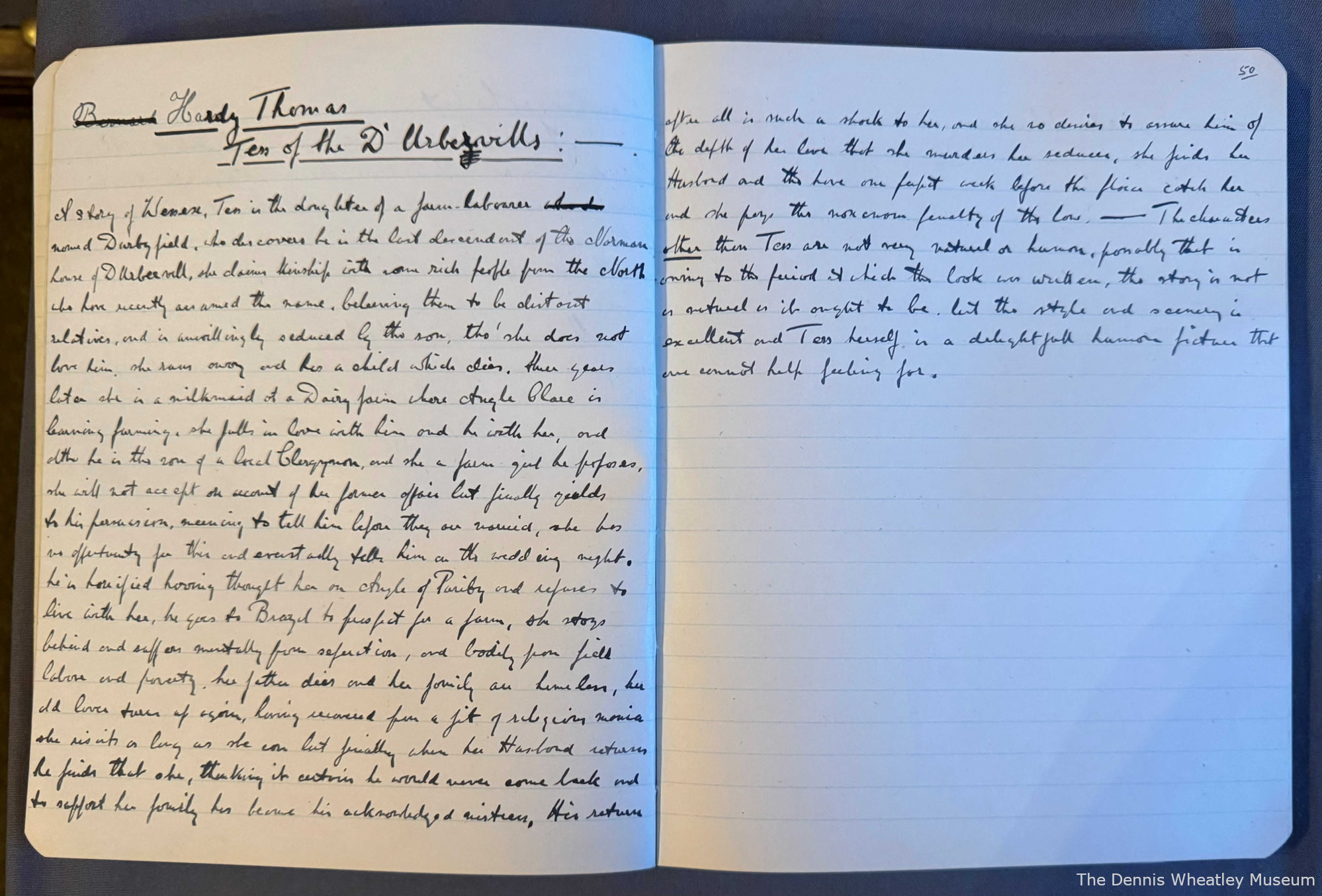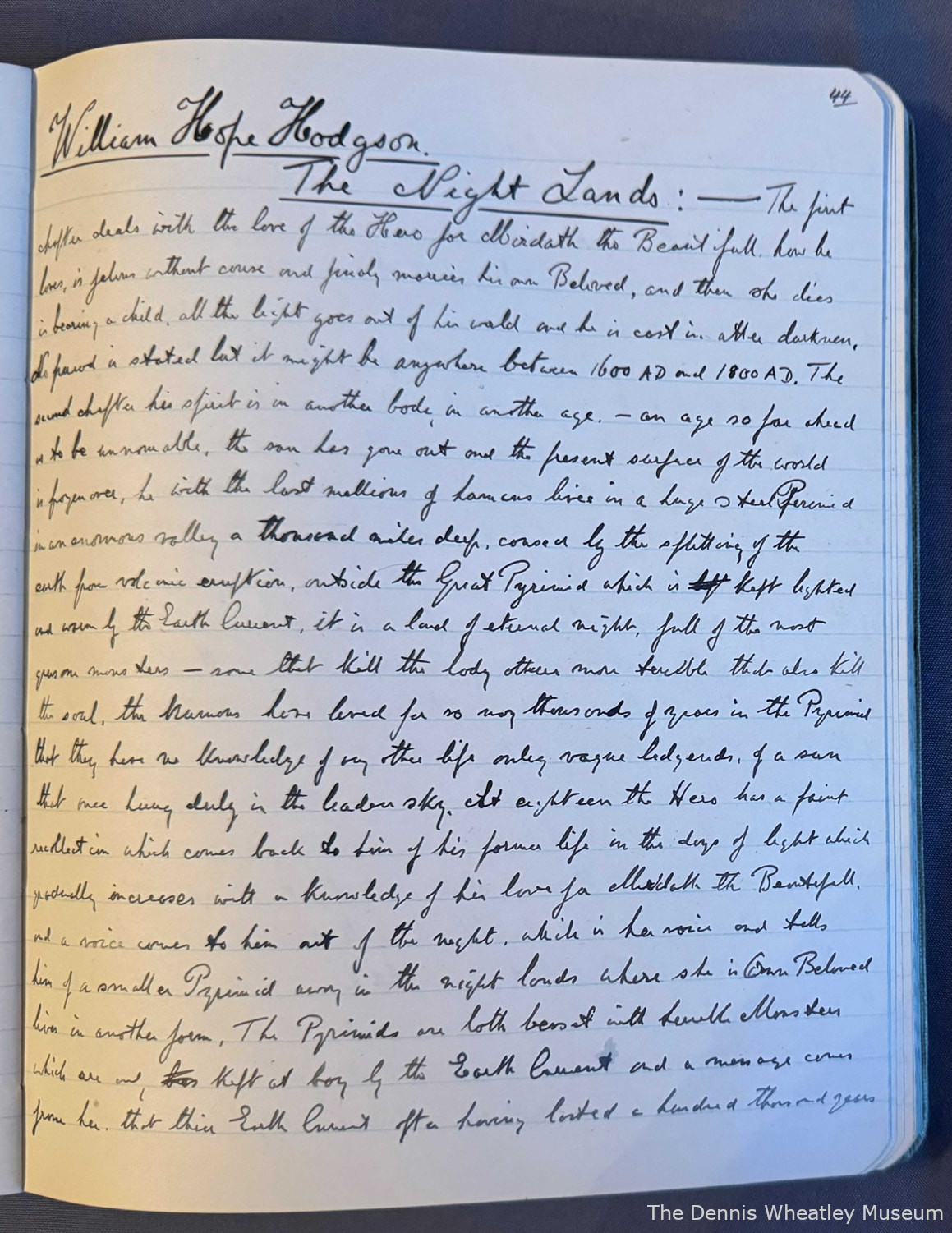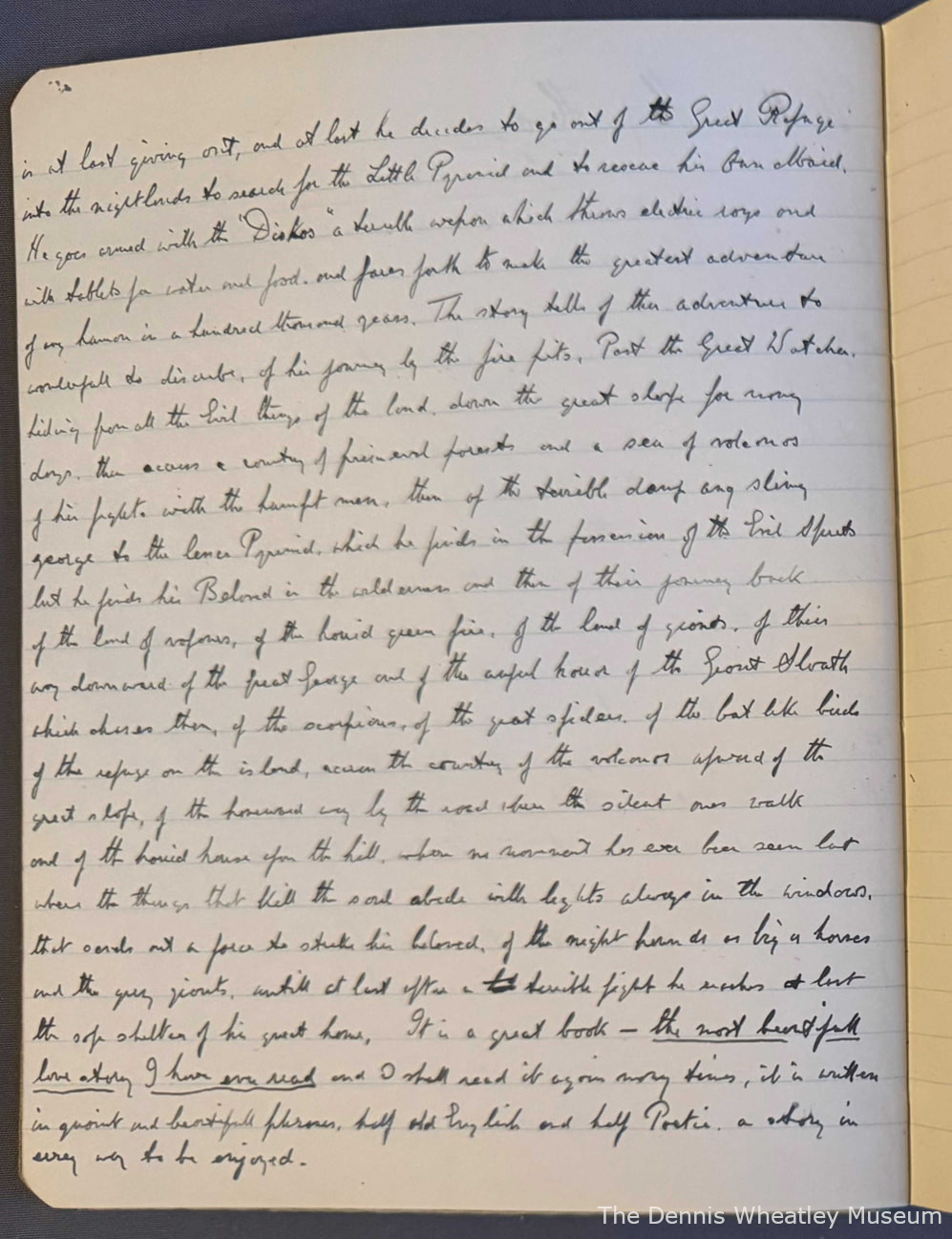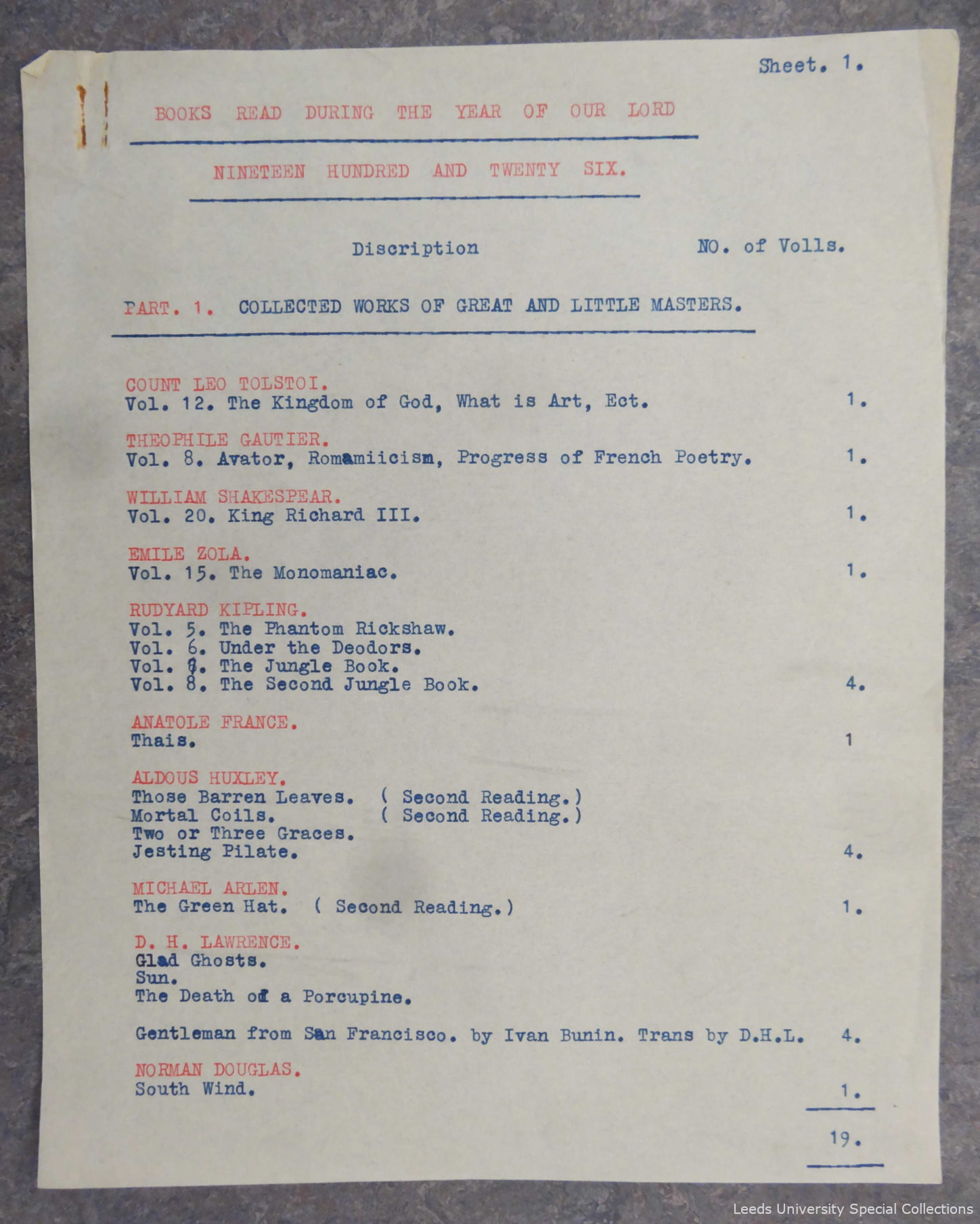
 |
Floor Plan |  |
The Dennis Wheatley 'Museum' - Dennis Wheatley's Writing Technique
DW the extraordinarily well-read young man
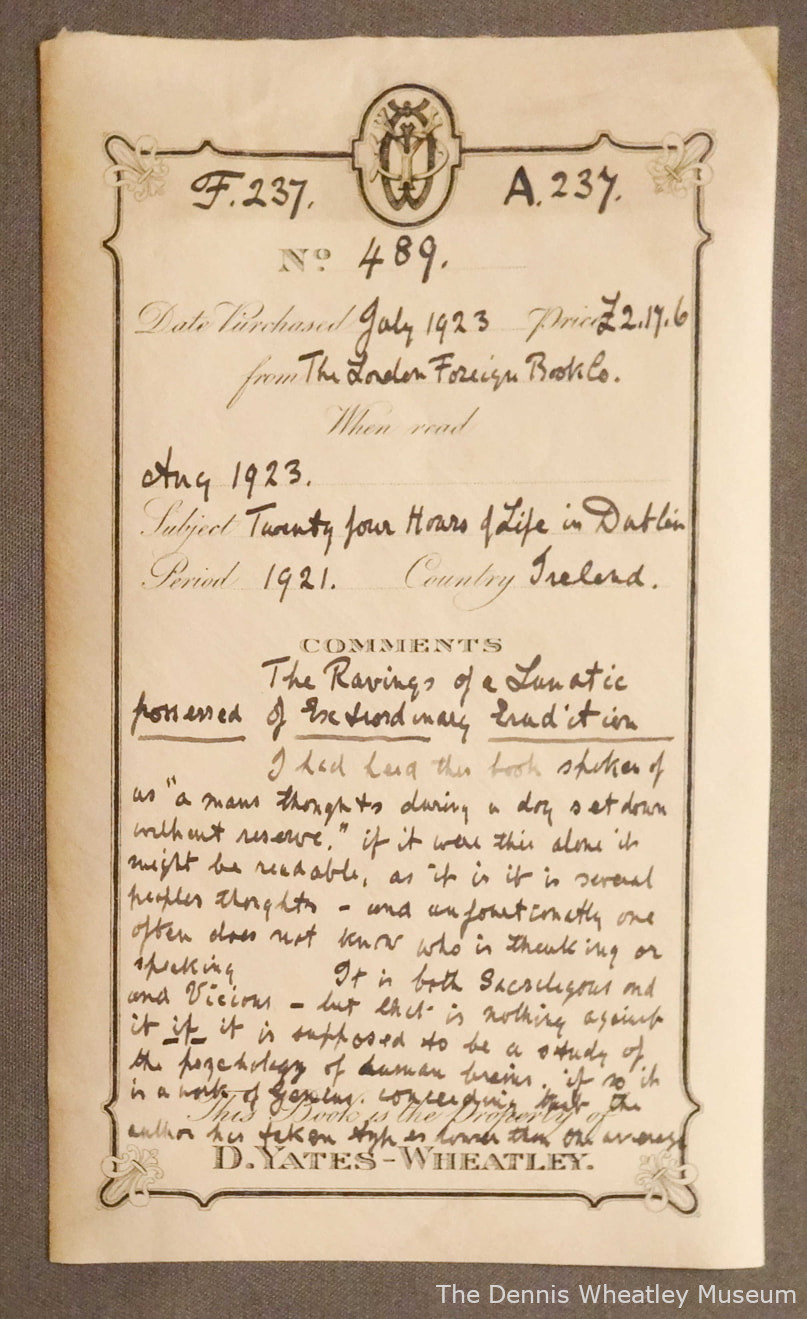
DW's 'earlier' (pre 1928) bookplate - this one from his first edition of James Joyce's 'Ulysses'
Click on the image to enlarge
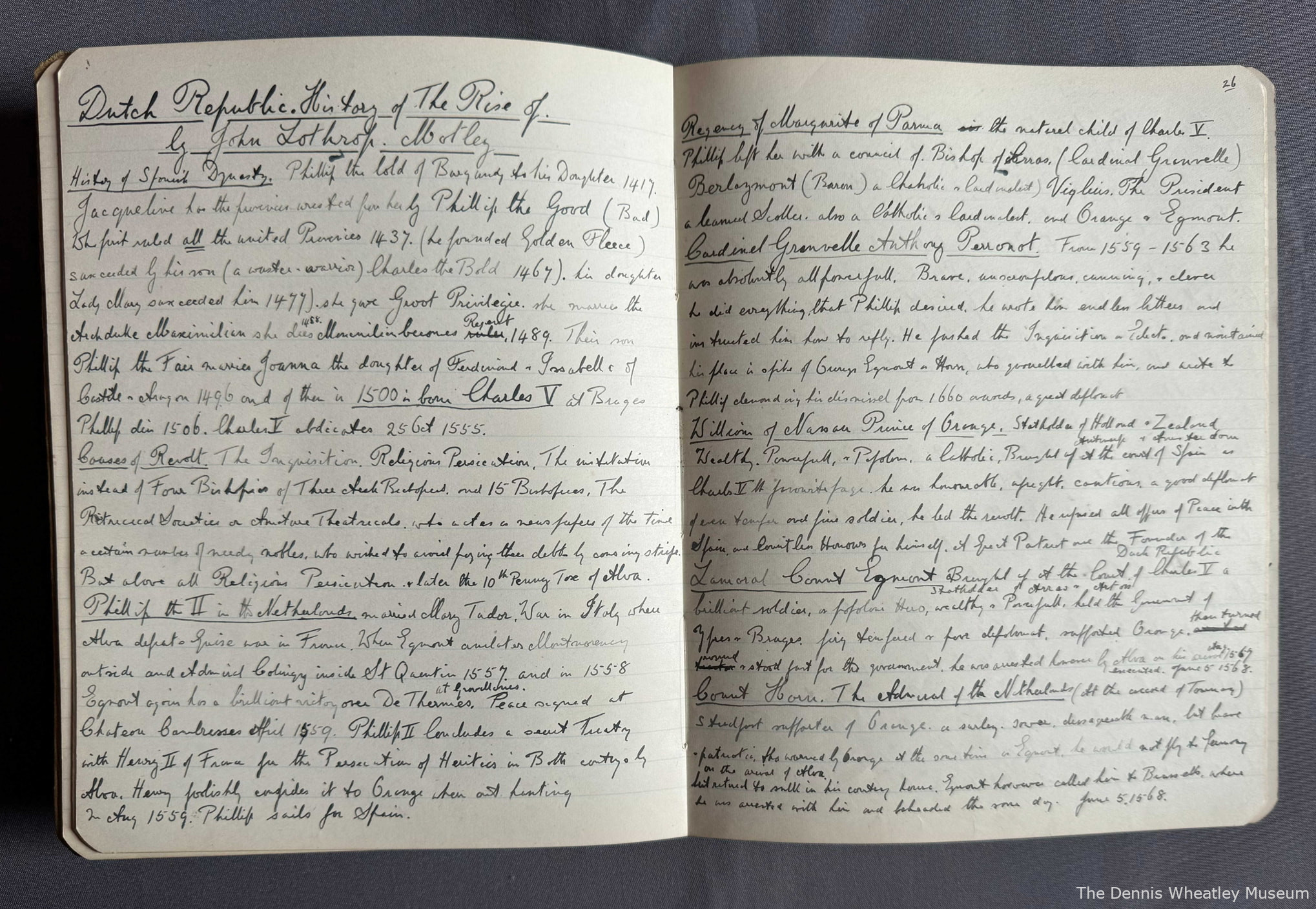
DW's notes on a book he read in 1920 on the rise of the Dutch Republic
Click on the image to enlarge
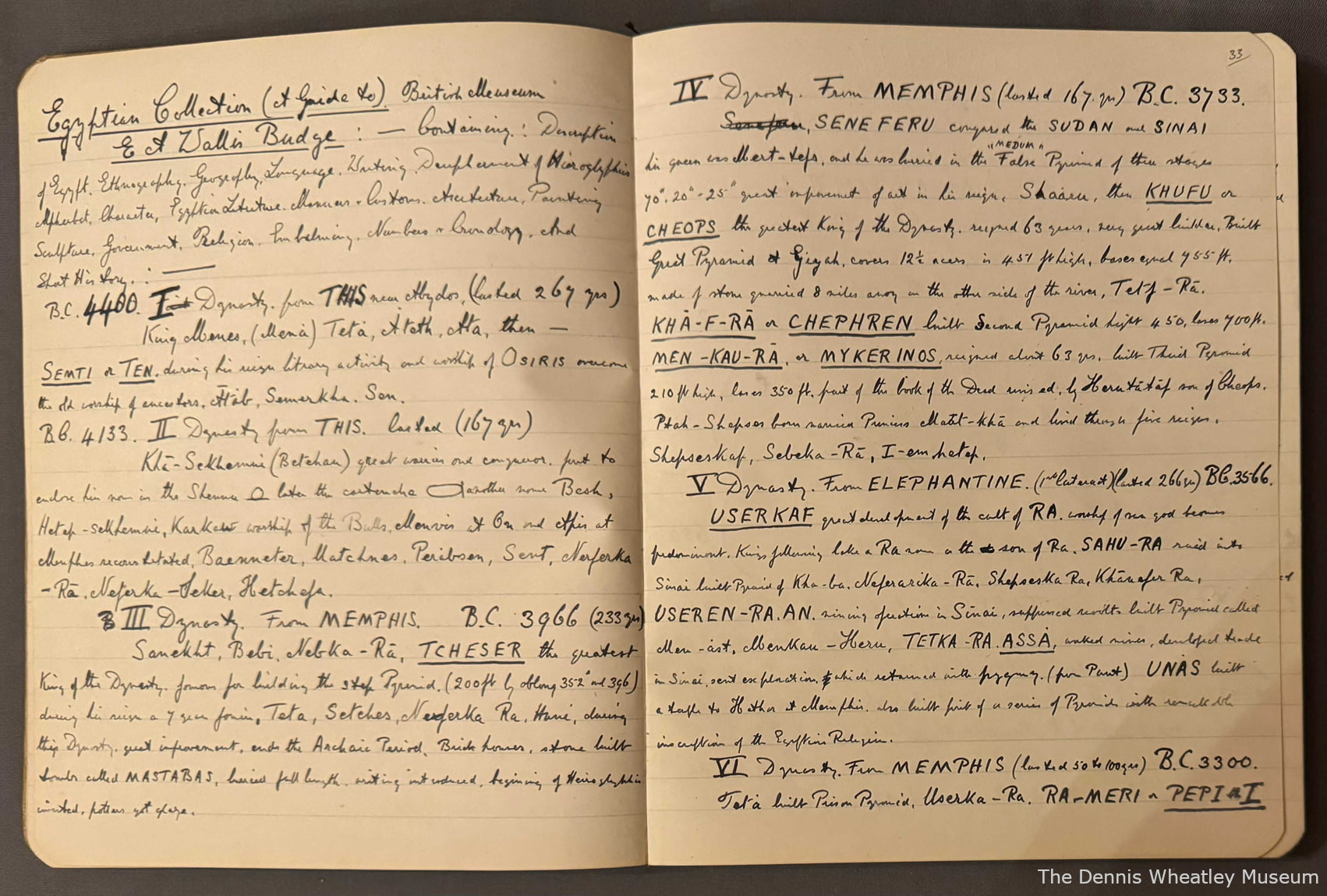
Two (of a total of ten) pages of DW's notes on a book he read in 1920 of a book on Ancient Egyptian history
Click on the image to enlarge
From an early age DW enjoyed reading novels, but his conversion to serious reading took place in 1917, when he shared a billet with a well-read and charismatic, but extremely dodgy, man who became for a few years his mentor - Gordon Eric Gordon Tombe.
As DW later wrote, 'He aroused my interest in the ancient civilisations of Egypt, Chaldea, India, Persia, Greece and Rome. I read Petrie, Budge, Mommsen, Gibbon... and Aristophanes; also the texts of Taoism, the Shu, Hsiao and Yi King, the Zend Avista, the sacred texts of the Buddhists', and more. Gordon Tombe also introduced him to Tolstoy, Dostoevsky, Chekhov, Flaubert, Proust, Stendhal and many other authors of the same rank.
These quotes give however the barest hint of the books that DW was devouring, and critically assessing.
As the exhibits show, DW was not only writing brief notes about the books he read on his early (pre-1928) bookplates, but as we can see from his 1920 notebooks (he kept one for fact, and one for fiction) he wrote lengthy assessments of everything he read. And his reading rate was prodigious - as another exhibit shows, in 1926 alone he read (and in some cases re-read) a staggering one hundred and thirty books.
It is little wonder that when in the same year DW wrote to Aldous Huxley asking if he would signed DW's set of his novels, Huxley not only did so, but accepted an invitation to dine with DW (who by then was a wine merchant), and gave him some advice on writing short stories while they ate. And Huxley was not alone. Other famous authors detected something serious and different in the young DW, and they too were happy to correspond with him and dine with him.
Despite not going to University (DW was expelled from Dulwich College, which he loathed, and spend the next few years in a nautical training ship where the emphasis on academia was presumably minimal), by his mid-to-late twenties, DW must have been one of the most widely read - and seriously read - individuals of his generation.
| References: | On the books and authors to whom DW was introduced by Gordon-Tombe, see 'Officer and Temporary Gentleman', pp 135-6. |
| Provenance: | Final two images: Reproduced with the permission of Special Collection Leeds, University Library (MS 1942) |
| Other Images: Private Collections |
